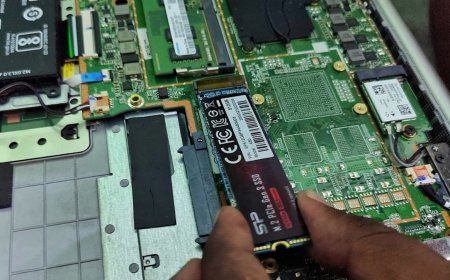How to Find Oakland Trumpet In-Person Band Band Tonguing Lessons
How to Find Oakland Trumpet In-Person Band Tonguing Lessons The trumpet is one of the most expressive and dynamic instruments in the brass family, capable of soaring melodies, bold fanfares, and subtle jazz inflections. Central to mastering the trumpet is the art of tonguing — the precise use of the tongue to articulate notes cleanly and rhythmically. Whether you're a beginner taking your first no
How to Find Oakland Trumpet In-Person Band Tonguing Lessons
The trumpet is one of the most expressive and dynamic instruments in the brass family, capable of soaring melodies, bold fanfares, and subtle jazz inflections. Central to mastering the trumpet is the art of tonguing — the precise use of the tongue to articulate notes cleanly and rhythmically. Whether you're a beginner taking your first notes or an intermediate player refining your technique, finding high-quality, in-person tonguing instruction in Oakland can transform your playing. This guide walks you through the complete process of locating, evaluating, and enrolling in personalized trumpet tonguing lessons in Oakland, with actionable steps, expert tips, and real-world examples to ensure you find the right teacher for your goals.
Unlike online tutorials or video courses, in-person lessons offer immediate feedback, tailored corrections, and the nuanced guidance that only a live instructor can provide. Tonguing — the act of using the tongue to start and separate notes — requires fine motor control, breath coordination, and muscle memory. A skilled teacher can observe your embouchure, tongue placement, air support, and timing in real time, making adjustments that no recording or app can replicate. In Oakland’s vibrant music community, there are numerous qualified instructors who specialize in trumpet technique, particularly in jazz, classical, and marching band styles. This guide will help you navigate that landscape with confidence.
Step-by-Step Guide
Step 1: Define Your Learning Goals
Before you begin searching for a teacher, clarify what you want to achieve. Are you preparing for a school band audition? Improving your jazz improvisation? Mastering fast legato passages in classical repertoire? Tonguing techniques vary depending on musical context. For example, jazz players often use a lighter, more fluid “da” or “la” tongue for swing feel, while classical players may prefer a sharper “t” or “d” for precision. Marching band musicians need consistent, powerful articulation for outdoor projection. Write down your goals in one or two sentences. This will help you identify instructors whose expertise aligns with your needs.
Step 2: Identify Local Music Institutions and Community Centers
Oakland is home to several institutions that serve as hubs for music education. Start by researching local music schools, community centers, and public libraries that offer private instruction or host visiting artists. Key locations include:
- Oakland School for the Arts (OSA) — Offers private lessons through its music department and often has alumni or faculty who teach privately.
- Oakland Public Library Music Room — Hosts occasional workshops and can connect you with local music educators.
- Bay Area Music Co-op — A collective of independent music teachers offering lessons in shared studio spaces.
- Community Centers — Such as the East Bay Center for the Performing Arts or the Fruitvale Community Center, which regularly host music programs.
Visit their websites or call during business hours to ask if they maintain a list of trumpet instructors offering private tonguing-focused lessons. Many instructors advertise through these institutions even if they don’t have their own storefront.
Step 3: Search Local Music Teacher Directories
Several online directories specialize in connecting students with local music teachers. Use these platforms to filter for Oakland-based trumpet instructors who mention “tonguing,” “articulation,” or “embouchure technique” in their profiles:
- TakeLessons.com — Allows filtering by instrument, location, and teaching specialty. Read student reviews for mentions of articulation improvement.
- Lessons.com — Similar to TakeLessons, with detailed instructor bios and video introductions.
- Thumbtack — Search “trumpet lessons Oakland” and sort by highest-rated instructors. Look for profiles that reference “band preparation” or “jazz articulation.”
When reviewing profiles, prioritize teachers who explicitly mention tonguing techniques, not just general trumpet instruction. Look for keywords like: “articulation drills,” “tongue placement correction,” “staccato control,” “double tonguing,” or “legato transitions.” Avoid instructors whose bios only mention “beginner trumpet” or “sight-reading” without technical detail.
Step 4: Visit Local Music Stores
Oakland’s music retail scene is a goldmine for finding qualified instructors. Stores like Music & Arts on MacArthur Boulevard, California Music Center in downtown Oakland, and independent shops such as West Coast Music often have bulletin boards with flyers from private teachers. Even better, staff members frequently know local instructors and can recommend those who specialize in band-style playing and articulation.
When you visit, ask:
- “Do you know any trumpet teachers who focus specifically on tonguing for band students?”
- “Are there any instructors who work with high school or college band programs in the area?”
- “Can you recommend someone who teaches double tonguing or advanced articulation?”
Don’t be shy to ask for a business card or contact info. Many teachers operate out of home studios and don’t maintain websites, so word-of-mouth referrals from music stores are invaluable.
Step 5: Connect with Local Band Directors and Music Educators
High school and college band directors in the East Bay are often the best sources for finding skilled private instructors. Contact the music departments at:
- Oakland High School
- Castlemont High School
- California State University, East Bay — Music Department
- Ohlone College — Music Program
Send a polite email or visit during office hours. Explain that you’re seeking a private trumpet instructor who specializes in tonguing technique for band repertoire. Many directors maintain a list of trusted private teachers they refer students to. Some even offer lessons themselves after school hours.
Step 6: Attend Local Performances and Music Events
Oakland’s music scene is rich with live performances. Attend concerts by local jazz ensembles, university bands, or community orchestras. After the show, approach musicians who play trumpet and ask if they teach. Many professional players offer private lessons and are eager to mentor motivated students.
Look for events such as:
- Oakland Jazz Festival — Held annually in the fall.
- West Oakland Music Fest — Features local and regional brass musicians.
- CSUEB Jazz Ensemble Concerts — Often held in the university’s recital hall.
Bring your trumpet or a notebook to take notes. If you hear a player with exceptional articulation — crisp, clean, and rhythmically precise — ask them after the performance: “I’m looking for a teacher who focuses on tonguing technique. Do you teach?” Many will respond with enthusiasm and provide contact details.
Step 7: Schedule Trial Lessons
Once you’ve compiled a list of 3–5 potential instructors, schedule trial lessons. Most teachers offer a 30-minute introductory session at a reduced rate or even free. Use this time to assess:
- Do they ask about your goals and current challenges?
- Do they demonstrate tonguing exercises on your instrument or with a mouthpiece?
- Do they use clear, visual language to explain tongue placement (e.g., “the tip of the tongue touches just behind the upper front teeth”)?
- Do they give you a specific exercise to practice before the next lesson?
A good instructor will not just play for you — they will observe your playing, identify subtle issues (such as tongue tension, delayed release, or inconsistent air support), and provide targeted drills. Avoid teachers who spend the entire lesson talking about theory or playing solo pieces without addressing your articulation technique.
Step 8: Evaluate Progress After 4–6 Weeks
After committing to a teacher for a few weeks, evaluate your progress. Are your tongued notes cleaner? Are you able to play faster passages without slurring or blurring? Do you feel more control over dynamics and articulation types (staccato, legato, marcato)?
Ask your teacher for a short recording of your playing from week one and compare it to your current performance. If you’re not noticing improvement, it may be time to try another instructor. Remember, finding the right teacher is as important as the technique itself.
Best Practices
Practice Tonguing Daily — Even for 10 Minutes
Consistency trumps duration. Spend 10 minutes each day practicing tonguing exercises. Start with slow quarter notes using a metronome, focusing on the release of the tongue. Use syllables like “ta,” “da,” or “ka” to vary the attack. Gradually increase tempo only when each note is clean and even. A good teacher will provide a structured daily routine.
Use a Mirror to Monitor Tongue Position
Place a small mirror in front of you while practicing. Watch the movement of your tongue. It should move quickly and lightly — not tense or overly deep in the mouth. A common mistake is letting the tongue drop too low or press too hard against the teeth, which muffles the sound. Your teacher should help you identify and correct these habits visually.
Record Yourself Weekly
Use your smartphone to record a 1-minute tonguing exercise once a week. Listen back critically. Are notes uneven? Is there a “pop” or “click” instead of a clean attack? Are some notes delayed? These recordings help you track progress and prepare questions for your next lesson.
Focus on Air Support, Not Just Tongue Movement
Many students believe tonguing is solely about the tongue. In reality, it’s a partnership between air and articulation. A weak or inconsistent airstream will make even the best tongue technique sound sloppy. Work with your teacher to strengthen your breath control. Practice long tones with steady airflow while tonguing lightly — this builds coordination.
Choose a Teacher Who Understands Band Repertoire
If you play in a school or community band, your teacher should be familiar with standard band literature. They should be able to help you master articulation in pieces like “Stars and Stripes Forever,” “An American in Paris,” or jazz standards like “Sing, Sing, Sing.” Ask them to demonstrate how to articulate specific passages from your current band music.
Ask for a Customized Tonguing Exercise Book
Top instructors create or curate personalized exercise books. Common resources include:
- Arban’s Complete Conservatory Method — Includes foundational tonguing studies.
- Herbert L. Clarke’s Technical Studies — Excellent for speed and precision.
- Charles Colin’s Lip Flexibilities — Helps coordinate tongue and embouchure.
Ask your teacher which exercises they recommend and request a printed or digital copy. Keep a dedicated notebook for your tonguing drills, noting what works and what doesn’t.
Don’t Rush Double Tonguing
Double tonguing (using “ta-ka” or “da-ga”) is a common goal for advanced players, but it should never be forced. A good teacher will wait until you’ve mastered single tonguing at moderate tempos before introducing double tonguing. Premature practice can lead to bad habits that are hard to correct. Patience and precision are key.
Tools and Resources
Metronome Apps
Use a metronome app to develop rhythmic accuracy. Recommended apps include:
- Pro Metronome (iOS/Android) — Offers visual cues and customizable subdivisions.
- Tempo (iOS/Android) — Allows you to set complex rhythms and record your playing.
Set the metronome to 60 BPM and practice tonguing quarter notes. Gradually increase to 120 BPM over several weeks. Never exceed your clean control threshold.
Recording Software
Use free software to record and analyze your playing:
- Audacity — Free, open-source audio editor. Record your tonguing exercises and slow them down to hear imperfections.
- GarageBand (Mac/iOS) — Easy to use with built-in metronome and effects.
Listen for inconsistencies in volume, timing, and tone. These are clues your teacher can help you fix.
YouTube Channels for Tonguing Technique
While in-person lessons are essential, these channels offer supplemental demonstrations:
- David Hickman Trumpet — Clear, detailed breakdowns of articulation mechanics.
- Chris Gekker Trumpet — Focuses on jazz articulation and phrasing.
- Jeffrey B. Reynolds — Excellent for classical tonguing and embouchure alignment.
Use these videos to reinforce what you learn in lessons — never as a replacement.
Books for Advanced Tonguing Development
Invest in these foundational texts:
- “The Art of Trumpet Playing” by Philip Farkas — A classic text with detailed analysis of articulation.
- “Trumpet Technique” by Allen Vizzutti — Includes modern approaches to tonguing and flexibility.
- “Jazz Trumpet” by Jon Faddis — For jazz-specific articulation and swing feel.
Ask your teacher to guide you through relevant chapters. Reading about technique while practicing it deepens understanding.
Local Resources in Oakland
Take advantage of Oakland’s public resources:
- Oakland Public Library — Offers free access to music education databases like Naxos Music Library and OverDrive for classical recordings.
- East Bay Express — Local publication that occasionally features profiles of music teachers.
- Facebook Groups — Search “Oakland Music Teachers” or “Bay Area Trumpet Players” for recommendations and event announcements.
Real Examples
Example 1: Marcus, 16, Oakland High Jazz Band Trumpet Section
Marcus struggled with fast eighth-note passages in jazz charts. His tonguing was inconsistent — sometimes too heavy, other times too soft. He found a teacher, Elena Ruiz, through his band director. Elena, a former member of the Oakland Symphony and a jazz educator, focused on syllable control (“ta-ka-ta-ka”) and air support. Within six weeks, Marcus could play “Moanin’” at 140 BPM with clean articulation. He later won a soloist spot in the district jazz festival.
Example 2: Priya, 32, Returning to Trumpet After 15 Years
Priya picked up her trumpet again after a long break. She wanted to rejoin her community band but couldn’t articulate cleanly. She searched TakeLessons and found David Tran, a former military band musician who specialized in rehabilitation for returning players. David used slow, repetitive tonguing drills combined with breathing exercises. After three months, Priya regained her confidence and now plays lead trumpet in the East Bay Community Band.
Example 3: Jamal, 19, CSUEB Music Major
Jamal needed to master double tonguing for his college audition. He attended a West Oakland Music Fest and spoke to trumpet player Lila Chen, who taught privately out of her home studio. Lila used a “tongue-tap” method, where Jamal practiced tapping the roof of his mouth with the tip of his tongue while sustaining air. Within two months, Jamal achieved clean “ta-ka-ta-ka” at 160 BPM. He was accepted into the CSUEB Trumpet Studio.
Example 4: Sofia, 14, First-Year Band Student
Sofia was overwhelmed by tonguing in her beginner band class. Her teacher recommended a local instructor, Mr. Alfonso, who taught through the Oakland Public Library’s music outreach program. Mr. Alfonso used visual aids — a small mirror and a straw to demonstrate airflow — to help Sofia understand the relationship between tongue and breath. Within two months, she could articulate scales cleanly and felt more confident in ensemble playing.
FAQs
How long does it take to improve tonguing technique?
With consistent daily practice and quality instruction, most students notice improvement within 2–4 weeks. Significant mastery — such as clean double tonguing at moderate tempos — typically takes 3–6 months. Progress depends on practice frequency, attention to detail, and the quality of feedback received.
Can I learn tonguing without a teacher?
You can learn basic tonguing from videos or books, but without a teacher, you risk developing bad habits — such as tongue tension, inconsistent air support, or improper placement — that are difficult to correct later. A live instructor provides real-time feedback you can’t get from a screen.
What if I can’t afford private lessons?
Many Oakland music educators offer sliding-scale fees or discounted rates for students. Contact community centers, libraries, or school music departments — they often have scholarship programs or volunteer instructors. Group lessons (2–4 students) are also more affordable and still provide personalized feedback.
Should I focus on single or double tonguing first?
Always master single tonguing before advancing to double tonguing. Single tonguing is the foundation. If you can’t play clean, even quarter and eighth notes with single tonguing, double tonguing will sound sloppy and uncontrolled. A good teacher will not rush you.
What if my current teacher doesn’t mention tonguing?
If your teacher focuses only on repertoire, scales, or general technique without addressing articulation, it’s time to seek someone else. Tonguing is a core technical skill. A teacher who ignores it is not providing complete instruction.
Do I need a specific type of trumpet to learn tonguing?
No. Any standard B-flat trumpet is suitable for learning tonguing technique. The focus is on your embouchure, air, and tongue — not the instrument. However, ensure your trumpet is in good working condition. A leaky valve or sticky slide can mask articulation issues.
How often should I take lessons?
Weekly lessons are ideal for steady progress. Bi-weekly lessons can work if you practice diligently. Less than once every two weeks may result in slow or inconsistent improvement. Consistency is more important than intensity.
Can adults learn tonguing as well as teenagers?
Absolutely. Adults often bring greater focus, discipline, and listening skills to their practice. Many professional teachers specialize in adult learners. Age is not a barrier — commitment is.
Conclusion
Finding the right in-person trumpet tonguing instructor in Oakland is not just about locating a teacher — it’s about finding a guide who understands the delicate balance between air, tongue, and musical intent. The journey to articulate mastery requires patience, daily practice, and the kind of nuanced feedback that only live instruction provides. By following the steps outlined in this guide — from defining your goals to attending local performances, connecting with educators, and evaluating progress — you will not only find a qualified teacher but also develop the discipline and awareness needed to become a confident, expressive trumpet player.
Oakland’s rich musical culture offers abundant opportunities for those willing to seek them out. Whether you’re a high school student preparing for auditions, a college musician refining your technique, or an adult returning to music after years away, the right teacher is out there. Use the directories, visit the music stores, attend the concerts, and don’t hesitate to ask for help. Your next clean, crisp, perfectly articulated note is just one lesson away.





























